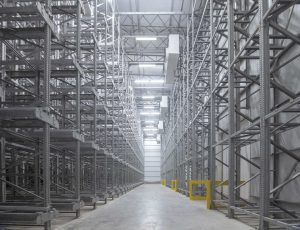Exploring the Advantages of Refrigerated Warehouses
Introduction
Refrigerated warehouses play a crucial role in the storage and preservation of perishable goods. These specialized facilities are equipped with temperature-controlled environments, allowing businesses to extend the shelf life of their products and maintain their quality throughout the supply chain. In this article, we will delve into the advantages of refrigerated warehouses and highlight their significance in various industries. What is the advantage of refrigerated warehouse?
The Importance of Temperature Control
Preservation of Freshness and Quality
One of the primary advantages of refrigerated warehouses is their ability to preserve the freshness and quality of perishable goods. Products such as fruits, vegetables, dairy products, meat, and seafood are highly susceptible to spoilage and degradation when exposed to unfavorable temperatures. By maintaining a controlled and optimal temperature within the storage facility, refrigerated warehouses significantly slow down the natural deterioration process, ensuring that goods arrive at their destinations in the best possible condition. What is the advantage of refrigerated warehouse?
Extended Shelf Life
Refrigerated storage helps to extend the shelf life of various products. Lowering the temperature inhibits the growth of bacteria and slows down enzymatic reactions, which are responsible for the degradation of food. By storing perishable items in a temperature-controlled environment, businesses can reduce the risk of spoilage, thereby reducing waste and maximizing profitability. This extended shelf life allows for better inventory management, reduces the frequency of stock replenishment, and enhances overall supply chain efficiency.
Industry-Specific Advantages
Food and Beverage Industry
Refrigerated warehouses are particularly vital for the food and beverage industry. With a constantly growing demand for fresh and high-quality products, businesses in this sector heavily rely on refrigeration to ensure that goods maintain their taste, texture, and nutritional value. These warehouses enable the storage of a wide range of items, including fresh produce, dairy products, frozen goods, and beverages. By investing in refrigerated storage, food manufacturers, distributors, and retailers can meet customer expectations, minimize product loss, and extend their market reach. For commgen refrigerated storage transport read on.

Pharmaceutical and Healthcare Industry
The pharmaceutical and healthcare industry also greatly benefits from refrigerated warehouses. Many medications, vaccines, and other medical supplies require strict temperature control to maintain their effectiveness. Temperature fluctuations can render these products ineffective or even dangerous. Refrigerated warehouses provide the necessary conditions for the storage and distribution of temperature-sensitive pharmaceuticals, ensuring their potency and efficacy. This advantage becomes even more critical when considering the transportation and distribution of vaccines, which require specific temperature ranges to remain viable.
Floral and Horticultural Industry
The floral and horticultural industry heavily relies on refrigerated warehouses to preserve the freshness and aesthetic appeal of flowers, plants, and foliage. These facilities maintain a cool and humid environment that helps slow down the wilting and decay process. By utilizing refrigerated storage, floral businesses can store their products for longer periods, reduce waste, and ensure that flowers and plants reach their destinations in excellent condition. This advantage is particularly significant during peak seasons and for international shipments where transportation times are longer.
Logistical Benefits
Efficient Supply Chain Management
Refrigerated warehouses contribute to efficient supply chain management by acting as a centralized hub for perishable goods. These facilities provide a controlled environment for product storage, ensuring that items remain fresh until they are ready for distribution. By consolidating inventory in a single location, businesses can streamline their logistics operations, optimize order fulfillment processes, and minimize transportation costs. Furthermore, refrigerated warehouses enable businesses to stockpile goods during periods of oversupply or favorable pricing, allowing for better market timing and increased profitability.
Reduced Seasonal Constraints
For industries that experience seasonal fluctuations in supply and demand, refrigerated warehouses offer a solution to overcome these constraints. By leveraging cold storage facilities, businesses can store surplus goods during peak production seasons and release them gradually when demand is high. This approach helps maintain stable pricing throughout the year, reduces waste resulting from surplus perishable items, and allows businesses to meet customer demand consistently.

Conclusion
Refrigerated warehouses provide a multitude of advantages across various industries. From preserving the freshness and quality of perishable goods to extending shelf life and enabling efficient supply chain management, these specialized facilities play a crucial role in modern commerce. Whether in the food and beverage, pharmaceutical and healthcare, or floral and horticultural sectors, businesses can benefit significantly from investing in refrigerated storage solutions. By harnessing the power of temperature control, companies can meet customer expectations, minimize waste, enhance profitability, and ensure the delivery of high-quality products throughout the supply chain.

Recent Comments